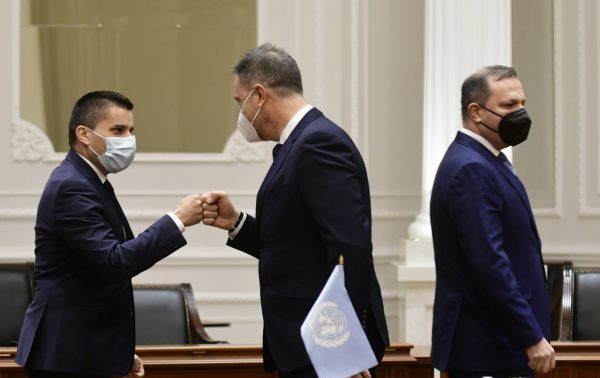Minister of Interior Oliver Spasovski signed Tuesday a Letter of Agreement with the United Nations Office on Drugs and Crime (UNODC) over the establishment of a Joint Airport Interdiction Task Force.
“The upgrade of UNODC Skopje from a Project to a Programme Office has opened the path of drafting, realizing and coordinating the portfolio of long-term instead of one-off projects, programmed in accordance with our joint interests and needs,” said Minister Spasovski at the signing event.
Joint projects will focus on raising the capacities and efficiency of border control and security, focusing on the fight against transnational crime and terrorism.
“We have a period of intensive cooperation ahead of us, including the establishment of the Joint Airport Interdiction Task Force at the International Airport Skopje and the required infrastructure, towards further strengthening of the performances of law enforcement authorities in the fight against transnational organized crime and terrorism in the Republic of North Macedonia, having significant effect on the enhanced border security and general safety, both nationally and internationally,” said Spasovski.
Ljupcho Nikolovski, Deputy PM for the fight against corruption, sustainable development and human resources, welcomed the agreement signing as part of the institutional efforts to raise the capacities and standards of law enforcement in the fight against crime.
“This is a global project that has already networked 34 airports, producing results across the globe, with the same also expected here,” said Nikolovski.
The Letter of Agreement relates to two programmes – Container Control Programme (CCP) and Airport Communication Project (AIRCOP).
John Brandolino, Director of the UNODC Division for Treaty Affairs, thanked the Government via video-link for joining AIRCOP and expressed assurance that its implementation would produce excellent results in North Macedonia.
Brandolino said UNODC would continue to support the country in the fight against transnational crime and terrorism, towards detecting and intercepting high-risk passengers and prevention of illicit air trafficking.
















